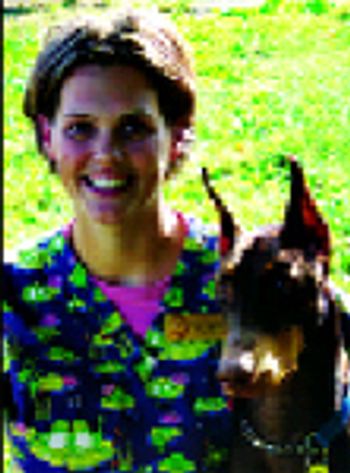
"Man, I just totally don't get it," Dr. Tad Klewless grumbled as he picked at the mustard stain on his scrub top. "Old Rex really needed a culture to clear up that gnarly ear problem I've been messing with for the past six months. And, jeez, those teeth! But, every time I bring up the procedures he needs, his owner just stares at me, totally blank, like she can't understand English. Man, what's up with her?"



